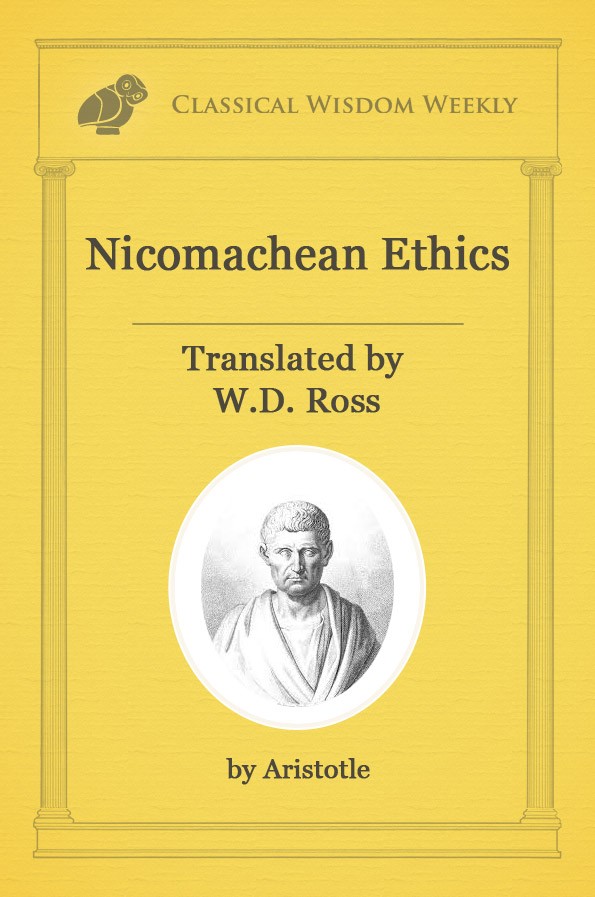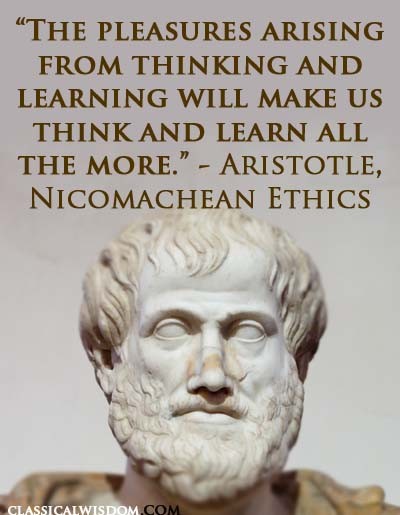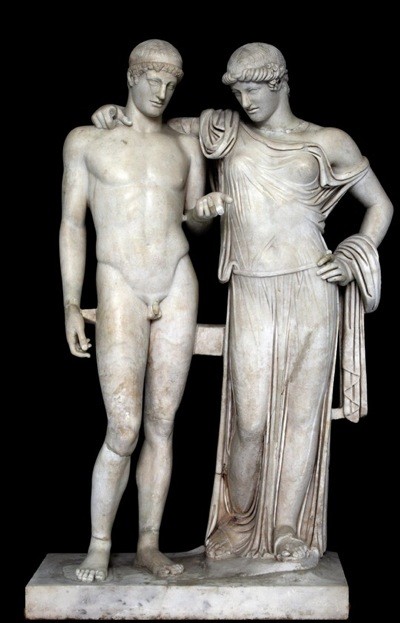There is the anecdote about a child who goes to school and is asked what he wants to be when he grows up. The child replies that he wants to be happy. The teacher tells him that he must not understand the question. The child tells the teacher that she must not understand life.

Now, putting aside for a moment that this story is often misattributed as a John Lennon quote, it still leaves us with a few interesting questions. Shouldn’t we be happy? Don’t we deserve to be happy? And, most importantly, are you
really happy?
We might assume that citizens of The United States, a country that is largely considered to be the economic powerhouse of the world, would be some of the happiest on earth. That is, perhaps unsurprisingly, not the case.
The World Happiness Report, a comprehensive study of global well-being compiled by The Earth Institute of Columbia University,
made efforts to assemble multiple surveys of self-reported happiness of United States citizens over the past 60 years.
The surveys show that when American citizens were asked to rate their overall happiness and well-being on a scale of one to ten (ten being very happy and one being very unhappy) the typical result in 1950 was between 7 and 7.5. Fast-forward sixty four years and the typical results for self-reported happiness drops to between 5.5 and 6.
Paradoxically, this drop in self-reported happiness occurred over a period of time where the U.S. GNP per capita rose by a factor of three, the study reports. And so it would seem that while we have excelled with technological advances and economic growth, we are no happier because of it.
If there is anybody who would have not been surprised by such a finding, it would have undoubtedly been the prolific Greek philosopher, Aristotle. Often considered to be the first great ethical philosopher, and often argued as the best philosopher – period, Aristotle took it upon himself thousands of years ago to find a suitable answer to one of the most troubling questions mankind has ever put forth…
How do I be happy?
The answer to such a question, if indeed there even is one, might be found in what is often considered to be Aristotle’s crowning achievement in philosophy, The Nicomachean Ethics.

More of a guide to self improvement rather than a series of abstract musings, Nicomachean Ethics aims at making us better people, or as Aristotle puts it, “excellent people.” It is for this reason that the ideas put for by Aristotle are of such importance. We are, very literally, in pursuit of happiness.
So where do we start?
Aristotle makes the claim that all things have a final end or purpose for which they aim. This is known as the “final cause” and it is the culmination of a thing’s potential. For a seed, the final cause would be an adult tree. For a sailboat, the final cause would be the act of sailing. However, for a human being, the final cause is… what exactly?
You may be tempted to say that there is not final cause, no ultimate end at which we aim. That would beg the question, ‘why do anything at all?’ Aristotle argues that there must be a final end to our actions. All of our suffering and our struggles must be an attempt to arrive at some final good that is intrinsically desirable. Otherwise, we would find ourselves stuck in an infinite regression where we continuously seek out extrinsic goods but never arrive at some final destination.
An illustration of this is quite simple. If you were to ask me why I write philosophy newsletters, I would undoubtedly give you an answer. I might tell you that I get paid to do this, or that I have an obligation that I wish to fulfill. Receiving money or living up to obligations is good, but they are only good insofar as they can get you other things such as a cozy apartment or the respect of your employers. Therefore, these things are not good in themselves, but only good in that they allow us to receive other things.

We could continue on this line of questioning about why I write newsletters. You could ask why I want a cozy apartment or the respect of my employers. With every answer I give, you could then ask me once more, ‘why?’
After some time of this, I guarantee that eventually I will tell you “… because I want to be happy.” If you were to ask me why I want to be happy, I would promptly stop talking to you and find someone less dense.
Why do you want to be happy? The answer, it would seem, is that we just do. Unlike money, happiness needs no alternate goods to be of use. Happiness is of value; it is perhaps the most valuable asset we can ever achieve.
You cannot store it in a bank or invest it in emerging markets. It cannot gain compounding interest, nor can it be converted to gold. Yet there it is, happiness: it is desirable in itself.
Here we arrive at Aristotle’s final cause for a human being. Our goal as rational beings is to be happy in life. However, we must, as Aristotle says, find the appropriate happiness from the appropriate pleasures given our status as logical beings.
Before we go on, and go on we undoubtedly will, we must address some common misunderstandings. While it is often said that money cannot buy happiness, we can certainly agree that a deficiency of money can certainly bring miseries.
Aristotle is something of a pragmatic thinker and so he admits that while wealth will never bring you true happiness, one still has to eat. Therefore, it might not be a bad idea to acquire some wealth so that you can afford things like groceries or a studio apartment. An old professor of mine once described this notion in the following way:
“Being rich won’t make you happy. Still, if you are going to be miserable, you might as well be miserable while sitting in a Mercedes Benz rather than on a public bus.”
Money will not necessarily bring you happiness. That still leaves the rather obvious question, what will?
For Aristotle, the method by which we find true happiness and a good life is by finding which pleasure is most appropriate for us given our status as rational beings. To find this appropriate pleasure, Aristotle appeals to an excellent, and very hypothetical, man of virtue.
Aristotle asks us to image a hypothetical man who is perfect in every way imaginable. This ideal of human perfection would find pleasure in that which is most perfect. What is this pleasure that is most noble and honorable? Aristotle tells us that it is the active expression of virtue.
“If this is correct, as it seems to be, and virtue, i.e., the good person insofar as he is good, is the measure of each thing, then what appears as pleasures to him will also BE pleasures. Whatever things are truly pleasant, they will be enjoyed by him.” -Aristotle (Nicomachean Ethics)
So…
The happy life and the good life are synonymous. We only find a happy life if we find our most appropriate pleasure as rational beings. Our most appropriate pleasure is the active expression of virtue.

Finally we must ask, which virtue is the truest, the most honorable, and the most noble? Believe it or not, not all virtues are created equal.
Remember that happiness is intrinsically good. Happiness is desirable in itself and requires no external goods in order to be appreciated. Certain virtues, however, do require these external objects. A just person, although very admirable, still needs other people to receive his just actions. A generous person, similarly, needs an abundance of resources so that he might give them to others in need. So there remains only one virtue that is desirable in itself, complete and eternally fulfilling.
Happiness is a life in pursuit of wisdom.
Finally, after so much consideration, we receive our answer, friends. This idea corresponds very well to earlier Aristotelian essays where the philosopher describes a human being as being a rational animal, and that we, by our very nature, desire to know. While other virtues require others to receive the bounty, wisdom is desirable in itself. The activity of study aims at nothing beyond itself and is pleasurable by its very nature.
“…what is proper to each thing’s nature is supremely best and pleasantest for it; and hence for a human being the life expressing understanding will be supremely best and pleasantest, if understanding above all is the human being. This life, then, will also be happiest.” -Aristotle (Nicomachean Ethics)
This idea that a life of study will bring us happiness falls very closely to the ideas of Socrates. The father of Western philosophy once prompted us to live an examined life; to explore and endeavor to discover the true depths of our wisdom and to never falter in our pursuit of understanding and truth.
“We must not listen to those who urge us to think human thoughts since we are human, and mortal thoughts since we are mortal; rather, we should as far as possible immortalize ourselves and do all we can to live according to the finest element within us- for if it is small in bulk, it is far greater than anything else in power and worth.”
-Aristotle (Nicomachean Ethics)
If a pursuit of wisdom is truly the happiest of lives, then it is perhaps unsurprising that after accumulating great wealth, and raising a beautiful family, so many people find themselves returning to study, the activity that is supremely pleasant. Our ability to learn and our penchant for wisdom is an end in itself; and it is only through the expression of our supreme element that we may truly be happy.
 Now, putting aside for a moment that this story is often misattributed as a John Lennon quote, it still leaves us with a few interesting questions. Shouldn’t we be happy? Don’t we deserve to be happy? And, most importantly, are you really happy?
Now, putting aside for a moment that this story is often misattributed as a John Lennon quote, it still leaves us with a few interesting questions. Shouldn’t we be happy? Don’t we deserve to be happy? And, most importantly, are you really happy?
 We could continue on this line of questioning about why I write newsletters. You could ask why I want a cozy apartment or the respect of my employers. With every answer I give, you could then ask me once more, ‘why?’
We could continue on this line of questioning about why I write newsletters. You could ask why I want a cozy apartment or the respect of my employers. With every answer I give, you could then ask me once more, ‘why?’









2 comments
Well chosen selection of excerpts in a very accessibly written article!
We stumbled over here by a different website and thought I might check things out.
I like what I see so now i’m following you. Look forward to checking out your web
page yet again.
Our apologies, you must be logged in to post a comment.